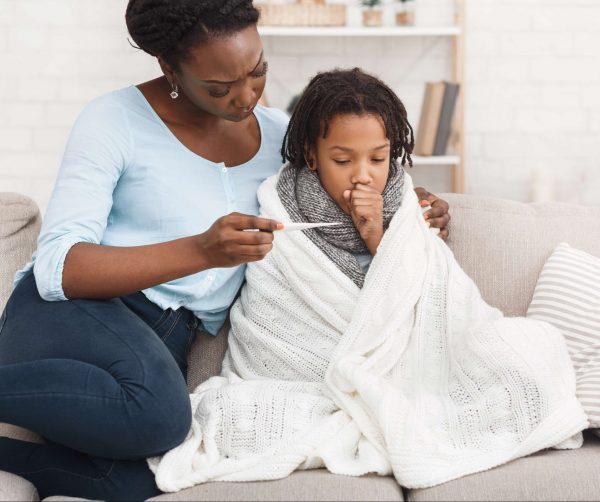The omicron surge has created more questions than answers, especially for parents as they try to navigate ever-changing health advice. Dr. Rob McGregor, chief medical officer at Akron Children’s answers some common questions about the omicron variant and children.
Why is the omicron variant affecting more children than the previous variants?
More children have become sick with omicron thanks to its contagiousness, says Dr. McGregor.

“If you just look at how much more infectious this variant is, we probably are seeing more kids – just like we’re seeing more adults are infected. And then if you have enough people infected, you’re going to see kids who are sick enough to be in the hospital. It definitely is affecting children, even those who are not eligible for a vaccine,” he said.
What are some common omicron symptoms in children?
While other variants have produced typical COVID symptoms like cough, fever and body aches, Dr. McGregor notes that some children infected with omicron experience a sore or scratchy throat in addition to other typical COVID symptoms.
Some younger children may also experience a rash, Dr. McGregor said.
My child has COVID symptoms. What do I do? Do they need a test?
Test kits are in short supply in the community. In addition, getting a testing appointment at community clinics can be difficult because appointment slots fill up so quickly.
“If the child has a cold or scratchy throat, and you know that there have been COVID cases near you, I would assume that it’s COVID and keep the kids home. You don’t need to be seen to get a test just to prove that you have it. I really think it’s the severity of the illness and also the youngest children – that is kids less than six weeks – warrant an in-person visit,” Dr. McGregor said.
How long should I keep my COVID positive or COVID suspected child home?
“I think we still have to be conservative with the kids. The data from the CDC suggests that most people will get infected, and the contagious time period is in that first three, maybe five days. If you’ve got someone in your household that’s suspicious for COVID, and you know there are contacts in your family who are unvaccinated or have other underlying medical conditions which would make their battle with COVID more complicated, I think you’d need to be on the conservative side and keep them out of circulation for at least five days. Probably more like seven to 10,” he said.
When is an ER visit warranted?
“If you find the child has such respiratory distress that it’s interfering with their ability to eat or drink, or they have changes in their mental status, they seem excessively sleepy or disoriented. Those would be reasons to get help,” Dr. McGregor explained.
How can I protect my family, especially younger, unable to be vaccinated children?
Vaccines not only protect your health but the health of others in your family who are unable to be vaccinated. With omicron, scientists have found that getting a COVID booster shot helps increase your protection against this variant.
“The message is if you’re eligible for your booster, get your booster. If you’ve got kids under five, we need to protect them by having the adults around them protected. That would be my strategy,” Dr. McGregor said.
In addition, McGregor notes, if you’re going to attend an indoor event this winter, consider these things:
- Choose outdoor sports and activities whenever possible
- Wear masks
- Keep it small – opt for small gatherings where you know everyone’s vaccination status, and you know they would call if they test positive










